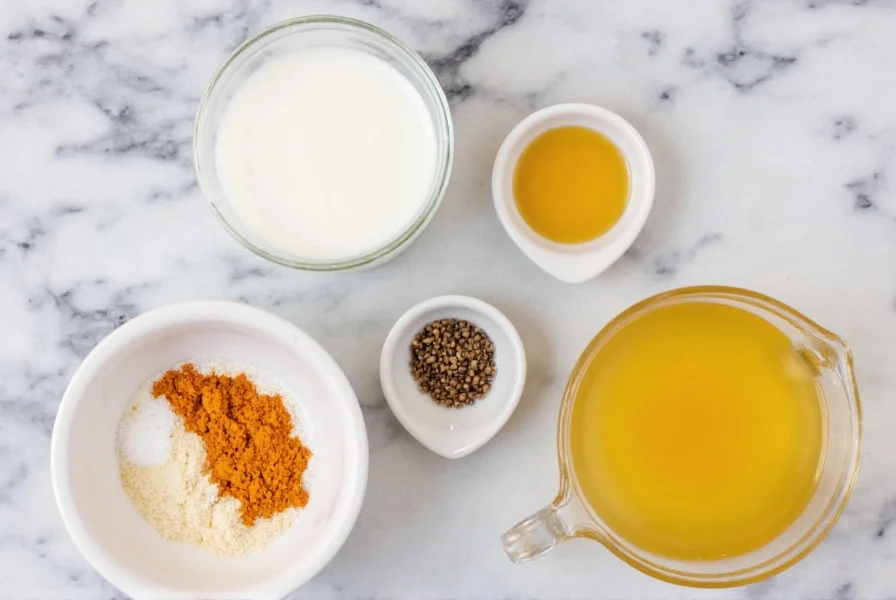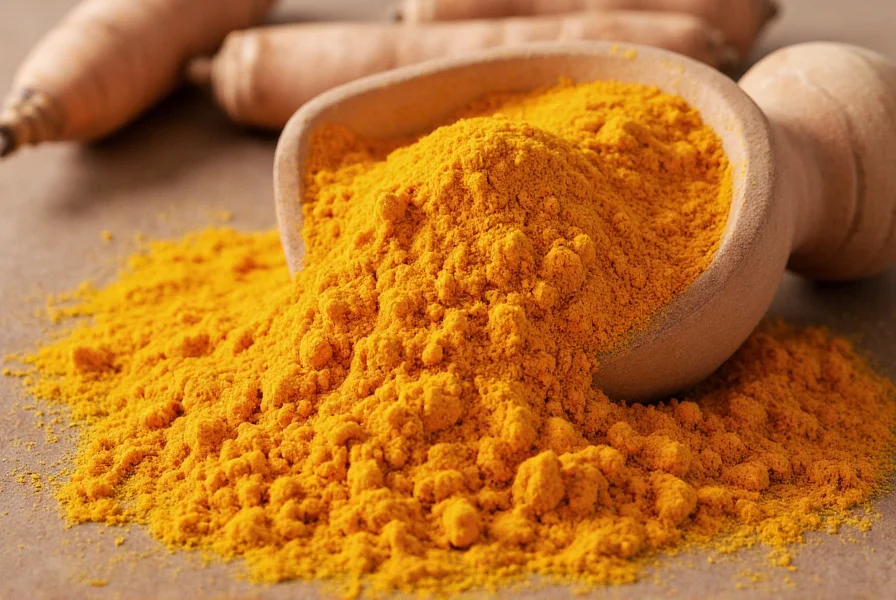The generally recommended daily dosage of turmeric is 1-3 grams of powdered turmeric (approximately 1/2 to 1.5 teaspoons) for culinary use. For therapeutic benefits, research suggests 500-2,000 mg of curcumin (turmeric's active compound) daily. Most adults can safely consume up to 8 grams of curcumin short-term, but long-term safety at high doses remains less established. Always consult with a healthcare provider before starting therapeutic supplementation, especially if you have medical conditions or take medications.
Curcumin, turmeric's primary bioactive compound, has gained significant attention for its potential health benefits. Understanding the appropriate daily turmeric dosage for inflammation and other health concerns requires examining scientific evidence alongside practical considerations for daily consumption.
Unlike many supplements, turmeric presents unique challenges due to curcumin's notoriously poor bioavailability. This means the safe amount of turmeric to consume daily differs significantly between culinary use and therapeutic supplementation. The form you choose dramatically impacts effective dosing.
Understanding Turmeric Forms and Their Potency
Turmeric appears in several forms, each with different curcumin concentrations:
| Form | Curcumin Content | Equivalent Daily Dosage |
|---|---|---|
| Fresh turmeric root | 2-3% curcumin | 20-60 grams (about 1-3 inches) |
| Dried turmeric powder | 3-5% curcumin | 1-3 grams (1/2-1.5 teaspoons) |
| Standardized curcumin extract | 95% curcumin | 500-2,000 mg |
| Curcumin with piperine | 95% curcumin + 5-20mg piperine | 400-1,500 mg |
Notice the substantial difference between culinary turmeric and therapeutic supplements. One teaspoon of turmeric powder contains only about 200 mg of curcumin, explaining why therapeutic doses require concentrated extracts. This distinction is crucial when determining how much turmeric powder per day provides meaningful health benefits versus simple culinary use.
Research-Backed Dosage Recommendations
Scientific studies provide valuable guidance on effective turmeric dosing. A comprehensive review published in Food and Chemical Toxicology examined numerous clinical trials and established that:
- For general wellness and antioxidant support: 500-1,000 mg of curcumin daily
- For turmeric dosage for arthritis and joint health: 1,000 mg of curcumin daily significantly reduced pain and stiffness in osteoarthritis patients
- For inflammation management: 1,500 mg of curcumin daily demonstrated anti-inflammatory effects comparable to some pharmaceuticals
- For cognitive health: Studies used 80-500 mg of highly bioavailable curcumin formulations
These research findings highlight that effective therapeutic dosing typically requires standardized extracts rather than culinary turmeric alone. The curcumin daily recommended amount varies based on your specific health goals and the formulation's bioavailability.
Maximizing Turmeric Absorption
Curcumin's poor bioavailability means that simply increasing dosage doesn't necessarily improve effectiveness. Consider these evidence-based strategies:
- Fat combination: Consume turmeric with healthy fats (avocado, olive oil, coconut milk) as curcumin is fat-soluble
- Piperine enhancement: Black pepper (containing piperine) can increase curcumin absorption by up to 2,000%
- Heat activation: Gentle heating (as in cooking) improves curcumin solubility
- Timing considerations: Taking turmeric with meals enhances absorption while potentially reducing gastrointestinal side effects
These factors significantly impact the effective maximum turmeric intake per day that your body can actually utilize. Many high-quality supplements already include piperine or other absorption enhancers, allowing for lower effective doses.
Safety Considerations and Potential Side Effects
While turmeric is generally safe at culinary doses, higher therapeutic amounts require caution. The World Health Organization suggests an acceptable daily intake of 0-3 mg per kilogram of body weight for curcumin. For a 150-pound adult, this translates to approximately 200 mg of curcumin daily.
However, numerous clinical trials have safely used much higher doses (up to 8,000 mg of curcumin) for limited periods. Common side effects at higher doses include:
- Digestive discomfort (nausea, diarrhea)
- Increased risk of bleeding (especially when combined with blood thinners)
- Potential interactions with diabetes medications
- Gallbladder contractions (problematic for those with gallstones)
Individuals with specific health conditions should exercise particular caution. Those with bleeding disorders, gallbladder issues, or who are pregnant should consult healthcare providers before using therapeutic doses. Understanding the safe amount of turmeric to consume daily requires considering your personal health profile.
Practical Daily Usage Guidelines
Translating research into practical daily routines:
- For culinary use: Incorporate 1-3 grams (1/2-1.5 teaspoons) of turmeric powder into cooking. This provides general antioxidant benefits without significant therapeutic effects.
- For general wellness: 500 mg of curcumin with piperine once daily, preferably with a meal containing healthy fats.
- For targeted health concerns: 500 mg of curcumin with piperine twice daily, taken with meals.
Many users wonder is 1 teaspoon of turmeric a day too much for culinary use. The answer is no—this amount is perfectly safe for most people and provides culinary flavor with modest health benefits. However, this quantity won't deliver therapeutic effects for specific health conditions.

Special Considerations for Specific Health Goals
Dosage requirements vary based on your health objectives:
- For inflammation: Studies showing anti-inflammatory effects typically used 1,500 mg of curcumin daily, often divided into multiple doses.
- For arthritis: Research indicates 1,000 mg of curcumin daily significantly reduces pain and improves function in osteoarthritis patients.
- For cognitive support: Lower doses (80-500 mg) of highly bioavailable curcumin formulations appear effective for brain health.
- For digestive health: Lower doses (500 mg) taken before meals may support healthy digestion.
When determining your ideal turmeric dosage for weight loss or other specific goals, remember that turmeric works best as part of a comprehensive health approach rather than a standalone solution.
When to Consult a Healthcare Professional
Before starting therapeutic turmeric supplementation, consult with a healthcare provider if you:
- Take blood thinners (warfarin, aspirin, etc.)
- Have gallbladder disease or gallstones
- Take diabetes medications
- Are scheduled for surgery within the next two weeks
- Are pregnant or breastfeeding
- Have a history of kidney stones
Professional guidance ensures your how much turmeric supplement should I take decision aligns with your specific health circumstances and medication regimen.
Conclusion: Finding Your Optimal Turmeric Dosage
Determining the right turmeric dosage requires balancing scientific evidence with individual factors. For general wellness, culinary use of 1-3 grams daily provides modest benefits. For therapeutic effects, standardized curcumin extracts delivering 500-2,000 mg of curcumin daily—preferably with absorption enhancers—offer the most research-supported approach.
Remember that consistency matters more than occasional high doses. Regular, moderate consumption provides more sustained benefits than sporadic high-dose intake. Always prioritize quality supplements with verified curcumin content and consider how timing and combination with other foods affects absorption.
What is the maximum safe daily turmeric dosage?
For culinary use, up to 3 grams (about 1.5 teaspoons) of turmeric powder daily is considered safe for most adults. For therapeutic supplementation, research shows that up to 8,000 mg of curcumin appears safe for short-term use (up to 3 months), but long-term safety at high doses is less established. Most experts recommend not exceeding 2,000 mg of curcumin daily for ongoing use without medical supervision.
Can I take turmeric every day long-term?
Yes, culinary amounts of turmeric (1-3 grams daily) are generally safe for daily long-term consumption. For therapeutic doses of curcumin supplements, research suggests that doses up to 1,500 mg daily can be safely taken long-term for most healthy adults. However, individuals with specific health conditions or those taking medications should consult with a healthcare provider before starting daily therapeutic supplementation.
How much turmeric should I take for inflammation?
For inflammation management, research indicates that 1,500 mg of curcumin daily provides significant anti-inflammatory effects. This typically requires a standardized curcumin supplement rather than culinary turmeric alone, as one teaspoon of turmeric powder contains only about 200 mg of curcumin. For best results, choose a formulation with enhanced bioavailability (such as those containing piperine) and divide the dose into two servings taken with meals.
Does the time of day matter when taking turmeric?
Taking turmeric with meals significantly enhances absorption and reduces potential digestive side effects. Many people find taking half their daily dose with breakfast and half with dinner provides consistent blood levels throughout the day. If you experience mild digestive discomfort, taking turmeric with your largest meal may help. For sleep support, some prefer taking their final dose with dinner as turmeric may have mild relaxing effects for some individuals.
How long does it take to see results from daily turmeric consumption?
The timeframe for noticing benefits from turmeric varies by individual and health goal. For inflammation and joint pain, many studies show measurable improvements within 4-8 weeks of consistent daily use at therapeutic doses (1,000-1,500 mg curcumin). General wellness benefits from culinary use may take longer to notice. Consistency is key—regular daily consumption produces better results than sporadic use. Some people report subtle improvements in overall well-being within 2-3 weeks.











 浙公网安备
33010002000092号
浙公网安备
33010002000092号 浙B2-20120091-4
浙B2-20120091-4